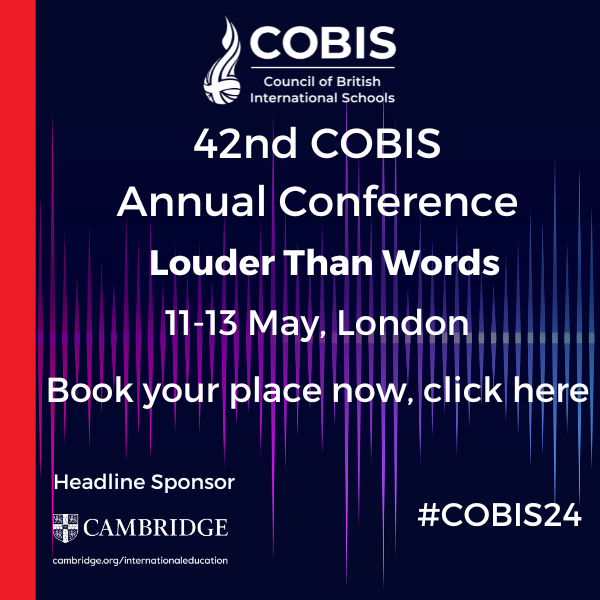The testimonials published on Everyone’s Invited in March 2021 shocked the world; it was extremely distressing to read the brave and honest words written by so many young people. From the prolific examples of casual sexism to accounts of serious sexual assault; it was difficult to comprehend that these incidents are so prevalent within our society.
With over 50,000 testimonials no school or university can claim to be exempt. We all aspire for our young people to have honest, equitable and trustworthy relationships; the stark reality is that this is not the case.
In the aftermath of the revelations, our primary concern was to support our students past and present, many of whom were rocked by these unfolding events. We quickly became acutely aware of the seismic impact Everyone’s Invited was having, we could not stand by and let this moment pass. As a school we encourage courageous action and inspire our students to speak out.
“We all aspire for our young people to have honest, equitable and trustworthy relationships.”
Our students, past and present, were upset and triggered by what they read; they were angry both at perpetrators but also at us, the school. There was a sense that although we helped them develop confidence and resilience we hadn’t prepared them to deal with the level of misogyny and harassment that they were often subjected to. We needed to do some deep soul searching; we needed to do better.
We are in a fortunate position to be part of an established educational trust, The Harpur Trust, and Bedford School, a single-sex boys’ boarding and day school, has always been our partner. We collaborate across the year groups and felt that we helped facilitate healthy relationships between our students.
However, it became apparent that a lot of trust had been lost in the older year groups. We needed to address this; we needed to build a culture of respect.
“It became apparent that a lot of trust had been lost in the older year groups.”
Over the last 18 months we have undertaken a structure review and implemented programmes to stimulate change and collaborative conversations. Reflecting back I think there are important lessons that we have learnt which I think are worth sharing with my peers:
Always demonstrate you care and that you listen: We publicly acknowledged our concern, shock and support for our students very early on through blogs, communications to parents and assemblies. This demonstrated to our students that we were trustworthy. We wanted them to bravely speak up; we needed them to know we would not judge, that we would listen.
Understand your limitation; work with professional experts: Despite our outstanding pastoral care team we recognised that we were not equipped to deal with the extent of these issues and we invited Safeguarding expert Adele Gladman in to undertake a systematic review and help guide our action plan. Adele looked across our communities through the lens of incidents of sexual bullying and harassment, the use of sexist/misogynistic language and incidents of sexual harm and violence.
“We needed them to know we would not judge, that we would listen.”
Allow the professionals free rein: Adele spoke with students, alumnae, staff and our safeguarding governors. Her expertise created a very safe, honest and reflective space. We could not have achieved the depth of understanding or change without her involvement.
Think holistically: Adele’s report recognised that, whilst we were trying our best to support our students, we needed to act in a wider context; her recommendations were far reaching and deep rooted from which we were able to build a platform for change. They included the introduction of a trust-wide Sexual Misconduct Policy; providing significant investment in specific staff training; working jointly with Bedford School on our PSHE programmes; creating a model for us to engage parents; and the introduction of the anonymous reporting tool – Toot Toot (which we now have available for students from Year 7 upwards).
Collaborate: You cannot start to change perspectives, culture and language in an ivory tower, it must be a collaborative process. For us, this meant working in conjunction with pastoral colleagues at Bedford School. Both schools committed to investing significant time and resources in making sure that we develop sustainable programmes which could be delivered jointly but also through our individual PSHE programmes.
“You cannot start to change perspectives, culture and language in an ivory tower.”
Encourage students to take the lead: If you are going to take the community with you, you need to hand control of elements of the programme to the students, you need to trust them. We created a framework for Sixth Form students across both schools to collaborate; they developed assemblies and workshops that could be delivered jointly. Highlighting the unity and modelling the behaviour they wanted to be replicated. Each year they pass the baton on to the incoming Upper Sixth.
Importance of including younger year groups: Our older students may be more vocal but recognising the need to work with younger year groups has been hugely successful; starting conversations with Year 9s; understanding their concerns; talking about misogynistic behaviour and language, discussing how to be an active bystander and confronting rape culture has been incredibly worthwhile.
Don’t shy away from setbacks and conflict: Not everyone will agree with what you are doing all the time; remember it is a long process. Our first joint event with the boys’ school was a series of hard-hitting talks, confronting sexual assault and rape culture, delivered by the Rap Project. They led different sessions for different age groups with the students from both schools coming together in the same room.
Their words and message were powerful. They led strong reactions, making many boys feel victimised; whilst allowing many of the girls to feel heard. It was a difficult afternoon but a vital step forward; all students had to reflect and respect each other’s views; it helped identify key issues that needed to be further addressed and illustrated that not everyone is starting in the same place.
Review regularly: Learn from what has gone well and what requires a different approach; being honest has helped a sense of unison across students and staff.
I am proud of the progress we have made; I am proud that students both at Bedford Girls’ School and Bedford School feel empowered to openly talk about issues, to learn from each other and to be invested in making change; but am also aware that our work is far from complete. As school leaders we all get pulled in many directions but we owe it to the young people in our care to make sure that this remains at the top of our agenda; feeling safe must be a fundamental right, not a privilege.




















